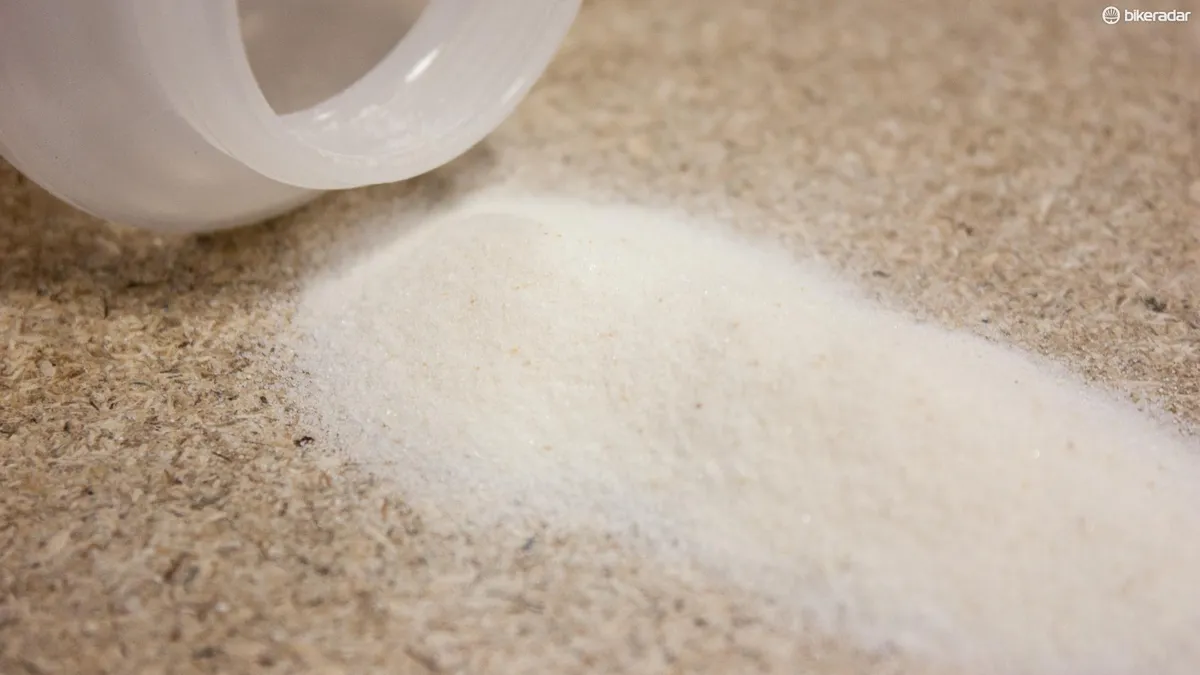A good sportive or gran fondo nutrition strategy can mean the difference between feeling strong and wanting to throw your bike in a ditch. Just as getting in the base miles prepares you for the long ride ahead, the key to successful sportive nutrition begins well before your event.
Sports nutritionist Emma Barraclough knows the science and practice of getting your fuelling right inside and out. Here she explains why carbs remain the primary source of fuel for high-performance endurance events and how to work out how much you’ll need.
Why carbohydrate and how much do you need?
Carbohydrates are quickly absorbed by the body and are used to top up muscle glycogen stores, which is essentially the fuel used to power your legs.
Carbs have long been adopted as the primary fuel source for high performance endurance sport, but diets such as high fat, low carb have been gaining momentum in the endurance world over the last couple of years. Emma explains why cyclists should still be preoccupied with counting carbs.

“If you want to perform at your very best level, carbohydrate is the only fuel source that can be metabolised fast enough to give you that energy in that scenario. So if you've dropped the carbohydrate content in your diet — and you're mainly using fat — you'll struggle to hit the same performance levels that you would do purely on carbohydrate.
“That’s not your performance level compared to others, it's how hard you're working yourself. At around 65 percent of your maximal heart rate you're starting to go into your aerobic zone and you're probably at a 50:50 carbohydrate to fat ratio for energy production, depending on your trained state.
“When you're getting over 75 to 80 percent of maximal heart rate, you're looking at carbohydrate as your dominant fuel source. Or, if you're using an RPE scale of one to 10 [the feeling of how hard you’re working], six upwards is probably equivalent to the 65 percent, then seven or eight [out of 10] for the higher end.”
So if you’re riding above 65 percent of you’re heart rate max or feel like you’re working at an intensity of six to seven out of 10, you’re already burning away the carbs and need to keep them topped up.
Burning fat?
Below that 65 percent level, though, fat can be used as a fuel. With many cyclists seeking to lose weight through the sport, how can those training for a sportive lever this to their advantage?
“Early in the season, if your goal is to be dropping your fat stores back down, and you're not too worried about pushing high performance training sessions, then a drop away from carbohydrate and more protein and fats would be ok. But once you're doing longer rides — probably two hour-plus sessions — and taking things up in terms of intensity, you'd be wanting to make the switch back.”
How much carbohydrate?
It used to be typical to prescribe carbs needed during exercise by bodyweight, but the variance in the size of people’s guts is relatively small, meaning most cyclists can absorb around the same amount of carbohydrate regardless of their weight. The amount needed really differs based on how well trained each athlete’s gut is.
“While you'd have ranges before, we're now saying 60g is about right for a recreationally trained athlete or serious endurance lifestyler. You will get some elites — both men and women — who can sometimes metabolise up to 90 to 100g an hour once using glucose and fructose together.”
Some of the best energy drinks contain 60g carbohydrates. Lower-carb drink mixes will need topping up with an energy bar or gel.
With this 60g figure in mind, you can get out on the road well ahead of your sportive and train your body to best use this fuel.
By the time you reach your event, nutrition worries are only a distant memory.
Emma Barraclough is the Senior Products Research Manager for Science in Sport (SiS) www.scienceinsport.com.
